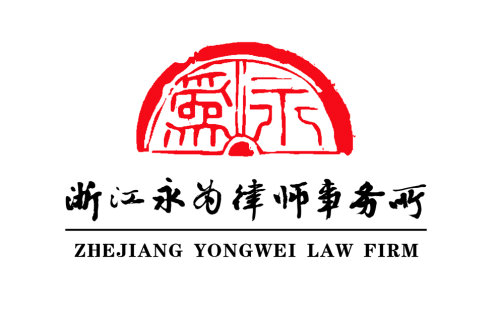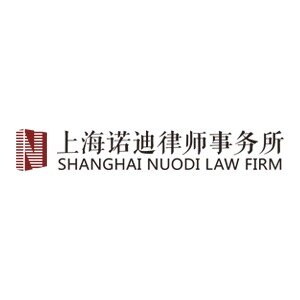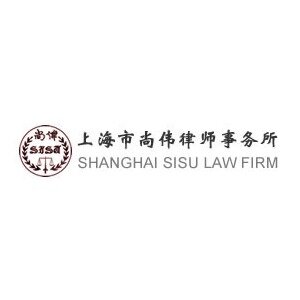Best Antitrust Litigation Lawyers in China
Share your needs with us, get contacted by law firms.
Free. Takes 2 min.
Or refine your search by selecting a city:
List of the best lawyers in China
About Antitrust Litigation Law in China
Antitrust litigation in China is designed to regulate and maintain fair competition within the country's dynamic market. Rooted in the Anti-Monopoly Law of the People's Republic of China, which came into effect in 2008, antitrust litigation addresses issues such as monopolistic practices, abuse of market dominance, cartel behavior, and mergers that may restrict competition. The law aims to protect consumer interests, foster innovation, and encourage a healthy business environment. Enforcement is mainly carried out through government authorities like the State Administration for Market Regulation (SAMR) and through civil litigation initiated by affected parties.
Why You May Need a Lawyer
Antitrust litigation in China can be complex and highly technical, involving detailed economic analysis and legal procedures. Here are some common situations in which you might need legal assistance:
- If your business is accused of price-fixing, collusion, or abuse of dominant market position
- When facing investigations or fines by Chinese regulatory authorities such as SAMR
- If you are a business harmed by anti-competitive practices and wish to file a lawsuit for damages or injunctive relief
- When your company plans to merge or acquire another business and needs to comply with merger review requirements
- If you are negotiating supply agreements or distribution contracts and want to ensure compliance with antitrust law
A skilled lawyer can help you navigate investigations, defend your rights, prepare legal documents, and advise on compliance to reduce risks and protect your interests.
Local Laws Overview
China's antitrust legal framework is primarily guided by the Anti-Monopoly Law. Here are some key aspects relevant to antitrust litigation:
- Prohibited Practices: The law forbids monopoly agreements such as price-fixing, output restrictions, and market division. It also bans abuses of dominant market positions, for example by imposing unfair prices or exclusive dealing arrangements.
- Merger Control: Certain mergers and acquisitions that meet turnover thresholds require prior approval from SAMR to prevent harmful concentration of market power.
- Enforcement Mechanisms: Both administrative enforcement (carried out by SAMR and its subsidiaries) and private civil actions are possible under the law.
- Penalties: Penalties can include significant fines, confiscation of illegal gains, and orders to cease anti-competitive conduct.
- Injunctions and Damages: Victims of monopolistic behavior may seek injunctive relief to stop illegal activity and claim compensation for losses suffered.
Understanding these local legal frameworks is essential when dealing with antitrust matters in China.
Frequently Asked Questions
What is considered monopolistic conduct in China?
Monopolistic conduct includes entering into agreements to fix prices, limit production, divide markets, or abuse a dominant market position by imposing unfair prices or restricting trade without justification.
Who enforces antitrust laws in China?
The State Administration for Market Regulation (SAMR) is the principal agency responsible for enforcing the Anti-Monopoly Law in China.
Can a business or individual file a private lawsuit for antitrust violations?
Yes, businesses or individuals who suffer losses due to monopolistic practices can file civil lawsuits seeking damages or injunctive relief.
What are the penalties for violating antitrust laws?
Penalties can include fines (up to 10 percent of the previous year’s sales revenue), confiscation of illegal gains, and orders to cease violations. Severe cases may also lead to criminal liability.
Are mergers and acquisitions regulated under Chinese antitrust law?
Yes, certain transactions that meet specific thresholds must be notified to SAMR for review before completion to ensure they do not create or strengthen a dominant market position.
How long does an anti-monopoly investigation typically take?
The duration varies but administrative investigations often take several months, depending on the complexity of the case and the cooperation of the involved parties.
Is leniency available for companies that report their own violations?
Yes, companies that voluntarily report their involvement in monopolistic behaviors and cooperate with investigations may receive reduced penalties under SAMR’s leniency policies.
Can foreign businesses be subjected to antitrust litigation in China?
Yes, if the conduct affects competition in the Chinese market, foreign businesses can be investigated and sued under the Anti-Monopoly Law, regardless of where the conduct occurred.
How can businesses ensure compliance with China's antitrust laws?
Businesses should implement internal compliance programs, provide staff training, review agreements for anti-competitive clauses, and seek legal counsel for business practices and transactions that may raise antitrust concerns.
What evidence is required to bring an antitrust lawsuit in China?
Claimants need to provide substantial evidence of illegal agreements, abuse of dominance, or anti-competitive effects, as well as demonstrate the resulting harm or loss. Gathering documentary proof, communications, and expert economic analysis is often essential.
Additional Resources
If you are seeking further information or assistance regarding antitrust litigation in China, the following organizations and resources may be helpful:
- State Administration for Market Regulation (SAMR) - The central authority for antitrust enforcement in China
- China Law Society - Offers research and educational materials on competition law
- China Competition Policy Forum - Provides up-to-date discussions on anti-monopoly issues
- Local university law centers and legal aid clinics specializing in economic and competition law
- Major law firms with practice groups in antitrust and competition law
Next Steps
If you believe you are involved in a situation related to antitrust law in China, consider the following actions:
- Gather and organize all relevant information and documents about your situation or business practices.
- Contact a qualified lawyer who specializes in Chinese antitrust and competition law for an initial consultation.
- Cooperate fully with any regulatory investigations while seeking guidance from your legal counsel.
- Consider developing or updating your company's internal compliance policies with the help of legal experts.
- Act promptly, as delays can affect your rights and the outcome of any enforcement action or legal proceeding.
Taking well informed and timely steps can help protect your interests and achieve a favorable result in antitrust matters in China.
Lawzana helps you find the best lawyers and law firms in China through a curated and pre-screened list of qualified legal professionals. Our platform offers rankings and detailed profiles of attorneys and law firms, allowing you to compare based on practice areas, including Antitrust Litigation, experience, and client feedback.
Each profile includes a description of the firm's areas of practice, client reviews, team members and partners, year of establishment, spoken languages, office locations, contact information, social media presence, and any published articles or resources. Most firms on our platform speak English and are experienced in both local and international legal matters.
Get a quote from top-rated law firms in China — quickly, securely, and without unnecessary hassle.
Disclaimer:
The information provided on this page is for general informational purposes only and does not constitute legal advice. While we strive to ensure the accuracy and relevance of the content, legal information may change over time, and interpretations of the law can vary. You should always consult with a qualified legal professional for advice specific to your situation.
We disclaim all liability for actions taken or not taken based on the content of this page. If you believe any information is incorrect or outdated, please contact us, and we will review and update it where appropriate.
Browse antitrust litigation law firms by city in China
Refine your search by selecting a city.












